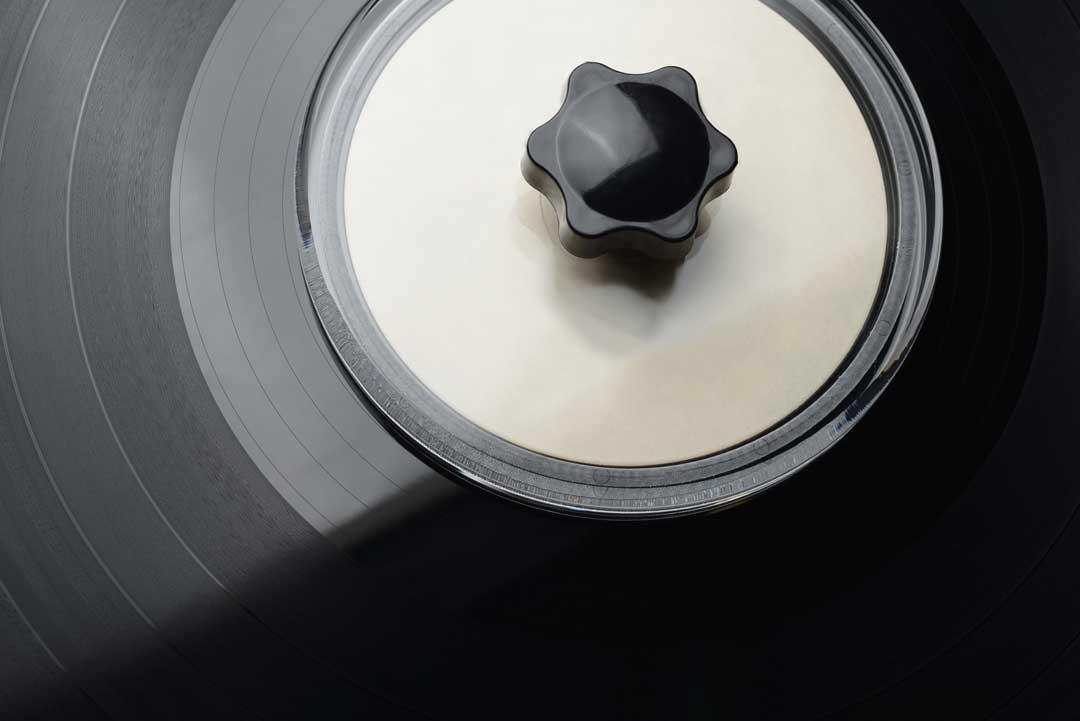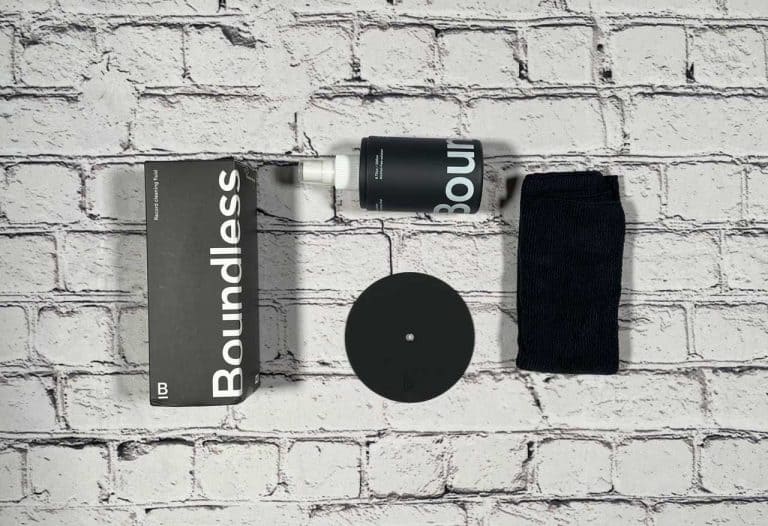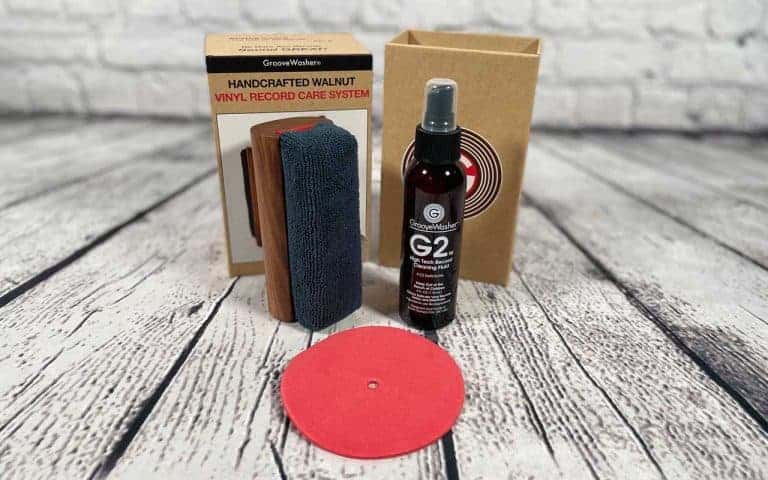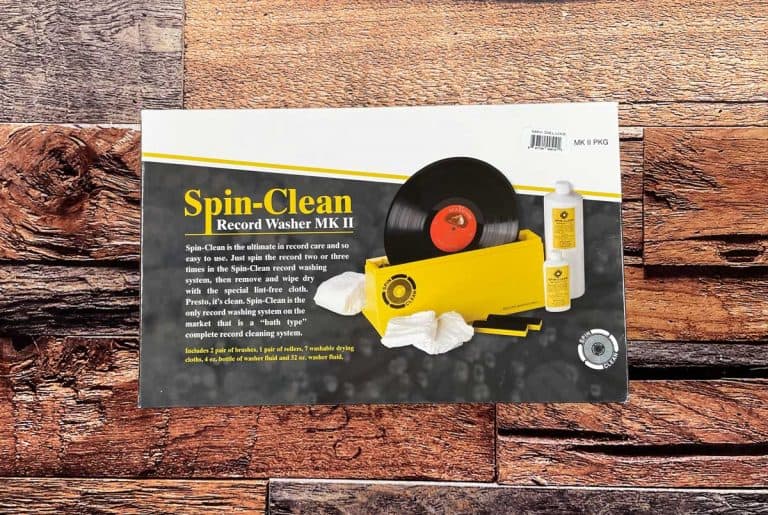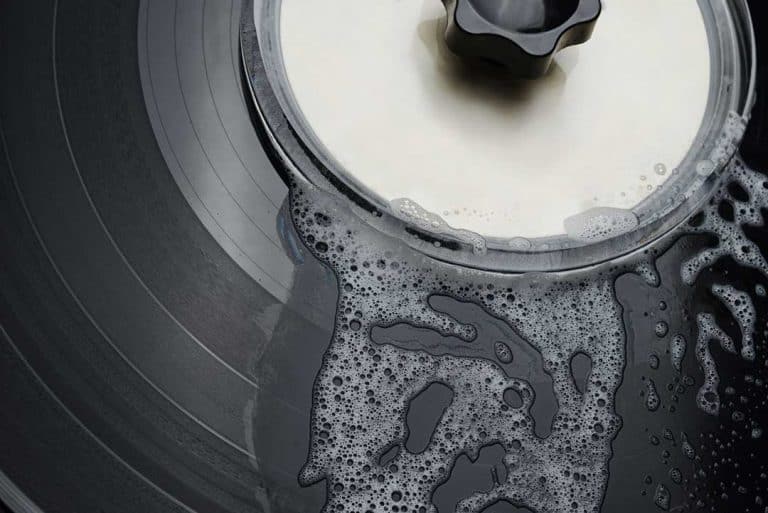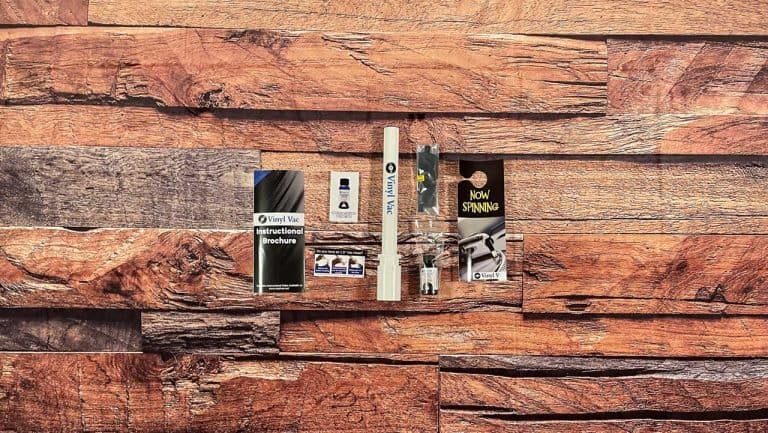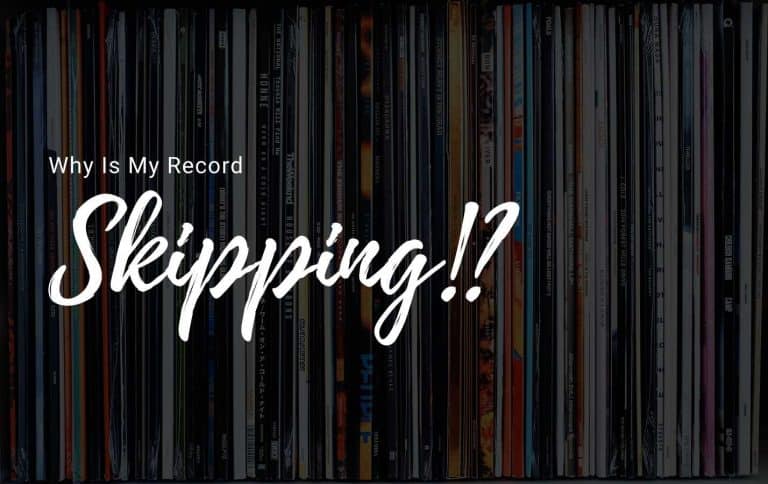How To Clean Vinyl Records With Windex? Record Cleaner?
What!? Window cleaner on a vinyl record? Who has ever heard of such a thing? Well, apparently a lot of people in the days of old used this exact thing to clean their vinyl record collection. Before a time of record specific anti-static brushes, clothes, and cleaners you had to use something to clean them.
How To Clean Vinyl Records With Windex? Steps for using Windex on your vinyl records.
- Make sure your Windex or glass cleaner is ammonia and alcohol-free if you can
- Spray the cleaner on a lint-free cloth
- Whip gently in a circular motion with the grooves
- Rinse both sides with distilled water after
- Sit out to dry completely before playing
We know it may sound odd and a bit strange to clean vinyl records with, of all things, window cleaners like Windex but hear us out first! There are some very specific things to consider before deciding to use Windex on your records and some things to look out for.
Can You Use Glass Cleaner On Vinyl Records?
Windex is a glass cleaner so a lot of times people ask if you can use Windex or glass cleaner on other things like their vinyl records. The biggest concern with using window cleaners on your vinyl records is ammonia and the second biggest is alcohol. You can and should buy a glass cleaner that is ammonia-free and alcohol-free if at all possible. This is because both ammonia and alcohol can eat pits into your vinyl.
Ammonia is much more likely to cause this than alcohol but you do not want to use either if you can help it and you definitely do not want to leave it on your record. There is a Windex Ammonia free but we can not confirm that it is alcohol-free. We do know that Sparkle Glass Cleaner is both ammonia and alcohol-free and have had several people tell us that is what they use.
If you surf around the various forums online about vinyl records you will see this debate come up. Technically you can use glass cleaner or Windex on your vinyl records but it is debatable whether or not you should. A lot of vinyl users that have been around the block for a long time say that this is the only method they have used consistently. Some even report that they and their record shops just use Windex and paper towels. This sounds absolutely terrifying to us however people do it. This does not necessarily mean you should use it though.
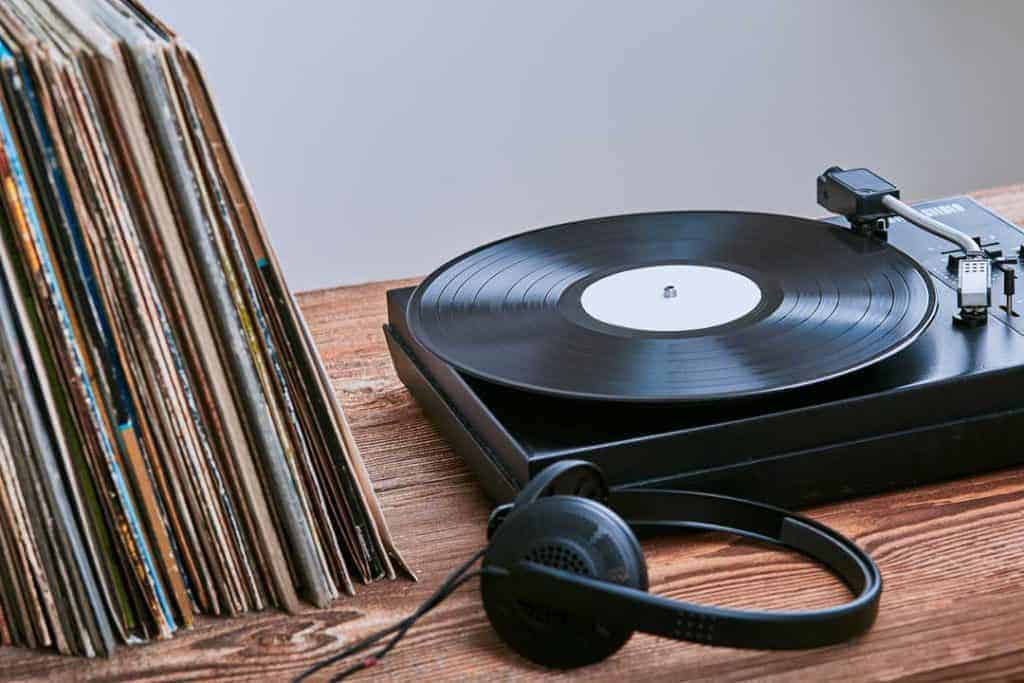
Is It Safe To Use Windex On Vinyl Records?
There are tons and tons of people that have used this method to clean their records. Some record stores use Windex with paper towels. Which we totally do not recommend. If you were going to use any form of a glass cleaner we would recommend a lint-free cloth like a microfiber cloth. Let’s break down the best and safest glass cleaner record cleaning method.
1. Make Sure Your Cleaner Is Ammonia And Alcohol-Free.
This is because ammonia and alcohols with time can cause problems for your vinyl. Especially if not rinsed off after the initial cleaning. Ammonia can even eat pits in your vinyl which can not be repaired if left on your vinyl for an extended amount of time. If you are having trouble finding one that is alcohol and ammonia-free look for some Sparkle Window Cleaner.
2. Spray The Cleaner On A Lint-Free Cloth And Not On The Record.
This is to reduce the risk of getting the cleaner on your label. The window cleaner could potentially damage the center label of your record. If you do get any on the label just remember to blot not wipe the liquid off of the label to reduce the risk of damage. The reason you use a lint-free microfiber cloth is that you do not want paper towel dust and lint being added back to the record.
3. Wipe Gently In A Circular Motion With The Grooves
You want to make sure that as you wipe the glass cleaner completely off that you are applying very light pressure and moving in a circular motion with the grooves. This is so you do not risk scratching the vinyl with the contaminants you are lifting with the cleaner and the surface dirt and dust. You want to make sure that you are as gentle as possible during this step.
4. Rinse Both Sides With Distilled Water After
The reason we think an important step is to rinse is that if there is anything else harmful in the window cleaner the rinse should remove and build up. It is important to use distilled or purified water for the rinse to remove any calcium, lime, or rust that could build up and deposit on your record from the tap or spring water. If you want to learn more about this we highly recommend this related article.
5. Sit Out To Dry Completely Before Playing
There are several methods to use for drying your vinyl but there are a couple we like and want to highlight here. Pat dry your vinyl with a link-free towel or cloth then leave it out to dry in a dish rack. A really great way to dry your vinyl that we also recommend for helping speed up the process is the Vinyl Vac used in combination with a small shop vac. Just make sure you use an old turntable or a lazy susan of some type so you can spin the record while vacuuming the water off.
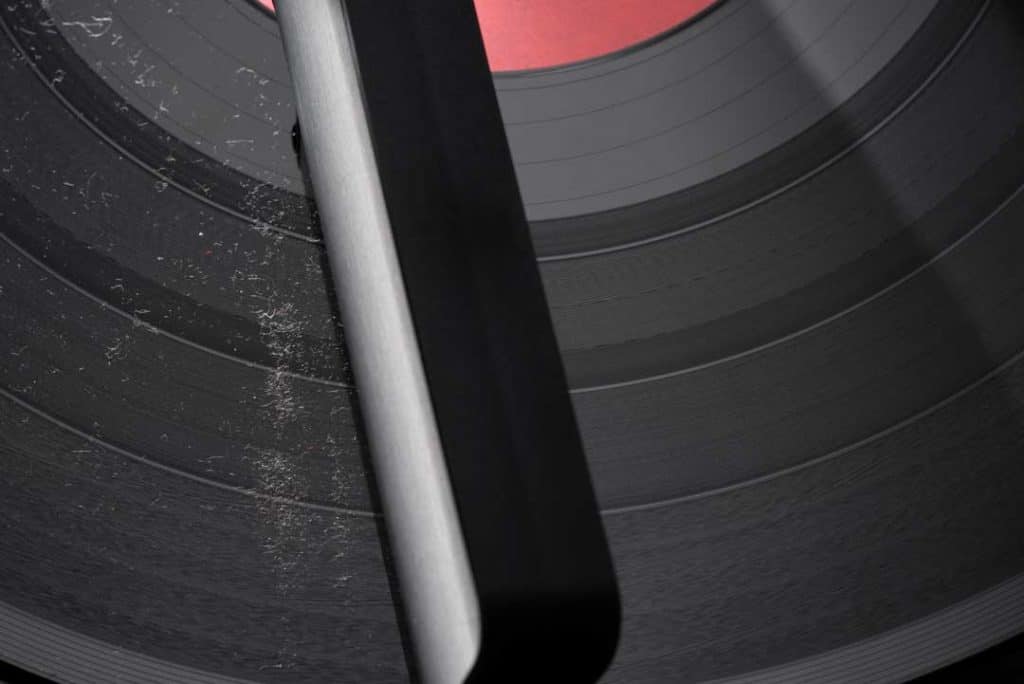
Should You Use Windex Or Window Cleaning Products On Your Vinyl Records?
So the next question that comes up after understanding the process of using glass cleaner is, should you? This is really a matter of personal preference. Some people really love the way glass cleaners clean their records. We do not recommend or prefer this as a method of cleaning. To us, we just feel there is too much risk involved with making sure you have the right kind of glass cleaner, that you do not get it on the label, and having to do the rinse.
What Do We Recommend Instead Of Glass Cleaner? Record Cleaner and Record Cleaning Solutions
There are several ways to clean your records and that’s a talk for another article but we do have a basic recommendation. To us, it is much easier to use a water cleaner like a Spin-clean Record Washer or the Vinyl Styl Deep Groove Record Washer System. If you are already having to do a “wet clean” method these by far are great options to really get your records cleaned up. You are already going to have to rinse and dry so why not just use a wet clean system? Some like the Vinyl Styl Deep Groove Record Washer System even come with a drying rack. Like we have said before based on how vinyl records work you need to keep them clean.
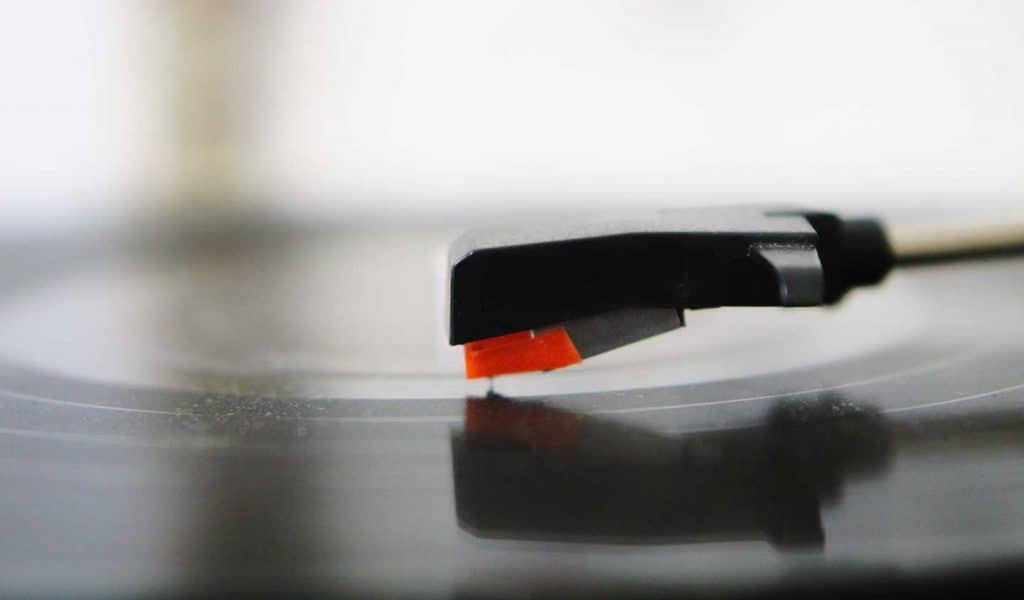
Wrapping Up Our Thoughts – Use Windex To Clean Records?
If you are just searching Google for cheap ways to clean your vinyl and you happened to read about Windex then somehow made it to this article here’s the thing, just use purified or distilled water with a couple of drops of dish detergent, like dawn. Even if you really need it to be a cheap method it should still be a good and not harmful method for cleaning your vinyl.
Most people are not going to just have alcohol and ammonia-free window cleaner lying around. This means you would have to order it or go to the store and in both scenarios, you could just buy vinyl specific cleaners in its place. So go for the water and soap instead. There is a great chance you have bottles or jugs of purified water in your home and if you do not have dawn or liquid dishwashing detergent then you may have a whole set of problems we can not help with!
Just follow the water cleaning methods we laid out in this related article and you should be ok. Water and liquid dish detergent will get the job done and be very gentle on the vinyl.
Happy listening, and we hope you enjoyed the read.
Frequently Asked Questions – Should You Clean Vinyl Record With Windex
How can I clean my vinyl records with Windex or record cleaner?
You can gently clean your vinyl records with a mixture of 4 parts distilled water to 1 part isopropyl alcohol. You should avoid using Windex or any cleaner containing isopropyl alcohol, as it can be harmful to vinyl records.
Can I use tap water to clean my vinyl records?
No, it’s not recommended to use tap water or a regular cleaning solution to clean vinyl records. Tap water can contain minerals and other impurities which may harm the vinyl record’s grooves and affect the sound quality.
Is it safe to clean vinyl records with dish soap and water?
While some collectors may use a mild dish soap and distilled water solution, it’s generally best to use a specialized vinyl record cleaner to avoid any potential damage or residue that could affect the sound quality of the record.
What are the potential risks of using homemade cleaning solutions on vinyl records?
Homemade cleaning solutions may contain chemicals or substances that are harmful to vinyl records. These solutions could leave a residue, affect the record’s sound quality, or even cause damage to the vinyl itself.
Is it necessary to use a record cleaning machine to clean vinyl records?
While a record cleaning machine can provide a thorough and efficient clean, it’s not necessary for all vinyl record owners. Many collectors achieve excellent results with manual cleaning methods using specialized cleaning solutions and tools.
How often should I clean my vinyl records?
It’s recommended to clean your vinyl records when you notice visible dirt or debris, or if you start to notice a degradation in sound quality. Regular maintenance and cleaning can help preserve the condition of your vinyl collection and ensure optimal sound performance.
Can using Windex or other cleaning products cause damage to a vinyl record’s grooves?
Yes, using Windex or other household cleaning products containing harsh chemicals can lead to damage to the microscopic grooves of your vinyl records, affecting the sound quality and potentially reducing their lifespan.
What should I do if I accidentally spilled a substance on my vinyl record?
If your vinyl record comes into contact with a substance such as oil, grease, or other liquids, it’s important to address it promptly. Use a specialized vinyl record cleaner and carefully remove the substance to prevent any potential damage or residue affecting the playback quality.
Are there any specific brands or formulas of vinyl record cleaners that are recommended for cleaning records?
There are several brands that specialize in vinyl record cleaning solutions, offering formulas that are safe and effective for maintaining your vinyl collection. When selecting a cleaner, look for products that are specifically designed for vinyl records and avoid cleaners containing harmful chemicals. Our recommended deep record cleaner and day to day record cleaner.
How can I prevent dust and debris from accumulating on my vinyl records?
To prevent dust and debris from accumulating on your vinyl records, store them in protective sleeves and keep them in a clean, dust-free environment. Regularly brushing your records with a carbon fiber or anti-static brush can also help maintain their cleanliness and sound quality.

